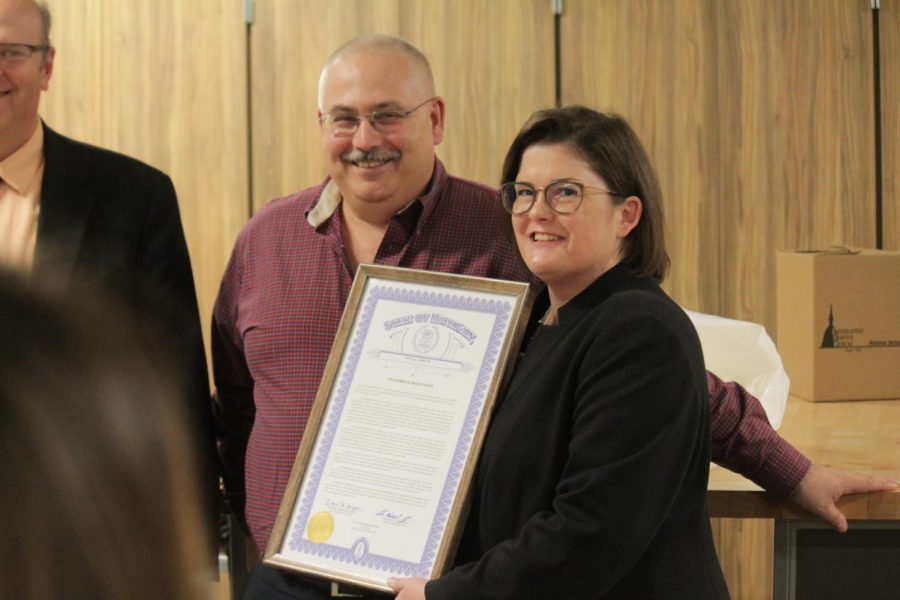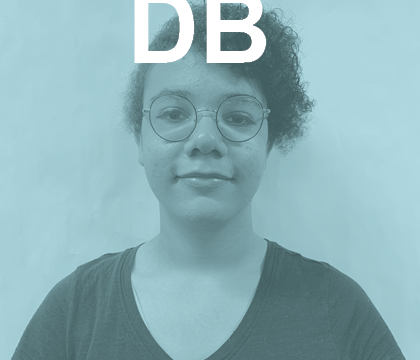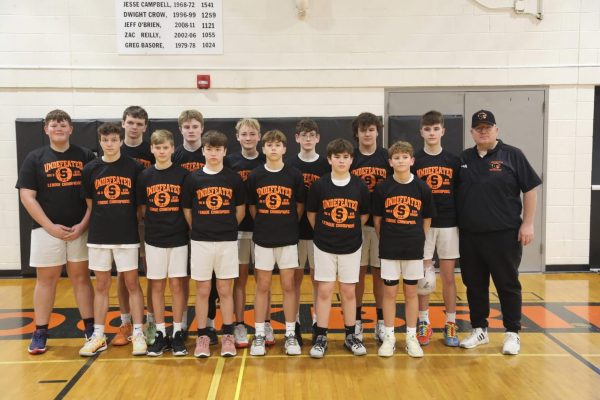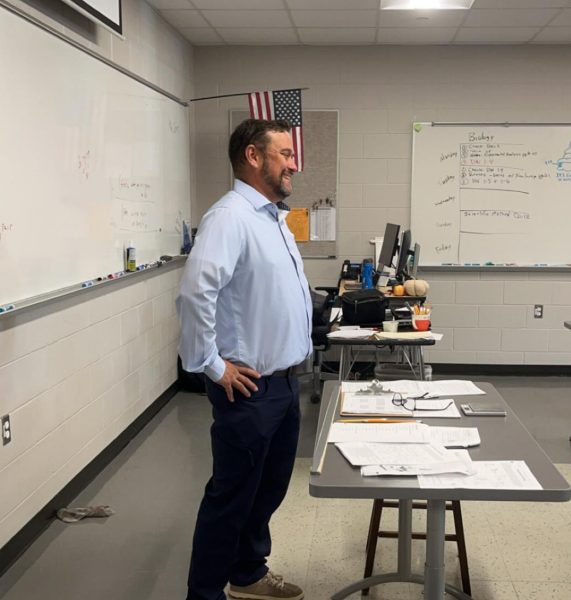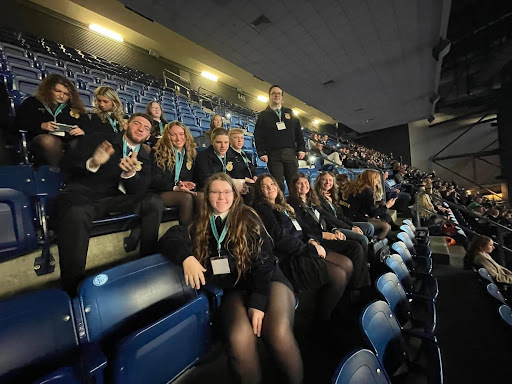Stockbridge InvenTeam earns grant from MIT program
Seniors Baylee Heidrich and Sylvia Whitt and Teacher Robert Richards dive into deeper detail about the InvenTeam’s history and their plans for the future State Representative Kara Hope.
Even though they are renowned internationally for their work in underwater robotics, the InvenTeam’s most recent and largest award is anything but fishy.
The team received a grant from the Lemelson-MIT Program of up to $10,000 in their own classroom on November 8 after months of work from the team members.
That meant that even through the summer months, instead of relaxing, the InvenTeam was hard at work applying for the grant. “It was a long process,” Anastasia Schlaff, a senior finance manager for the team, said. “There was different sections that we had to make everything make sense into. We had to give a detailed outline of what we were doing and how we were going to it. It was really important because it was applying for this $10,000 dollar grant, that we did get, which was really nice.”
The grant comes from the Lemelson-MIT Program at the Massachusetts Institute of Technology as a way to provide teams the funding they need to invent technological solutions to real-world problems of their choosing.
Stockbridge is 1 out of 14 schools to receive the grant out of thousands around the country that applied, and the team already has an idea in mind.
Enter the Emperor Micro-Lander, an environmentally-friendly device used for benthic operations, meaning it can conduct valuable research at the bottom of bodies of water.
Named after a species of fish that the team had previously recorded video of wherein the animal changed color to camouflage, a never-before caught on video event, the Emperor Micro-Lander will not only be tetherless, but is also small and light enough to be deployed by hand from small boats. It is designed to stay upright regardless of the seafloor terrain, and will contain multiple sensors for collecting data, including a depth and temperature sensor, but can also be outfitted with other custom sensor packages as needed.
Upon finishing its job, the device will automatically release biodegradable anchors that act as sacrificial weight and resurfaces for retrieval at the surface of the water.
“The ‘Emperor Micro-Lander’ fills a void in the current marketplace for a low cost, easy to deploy, operate, and recover sensor system that can be used by professional researchers and citizen scientists alike,” InvenTeam mentor Bob Richards said in a release.
The team plans to test a prototype in Key Largo, Florida, before presenting the design and concept at the National Museum of American History in Washington DC, along with the other 13 grant winners.
The effects of earning the grant are being felt throughout the team, no matter whether if the member is a seasoned veteran or a new beginner. “It’s really cool,” Jack Hammerberg, freshman member of the InvenTeam, said. “I knew that we were going to do some big things, and people were going to come along that were important, like legislators and things like that. But, truth be told, I didn’t even know they were coming today, and so I was really surprised when I was handed an award.”



